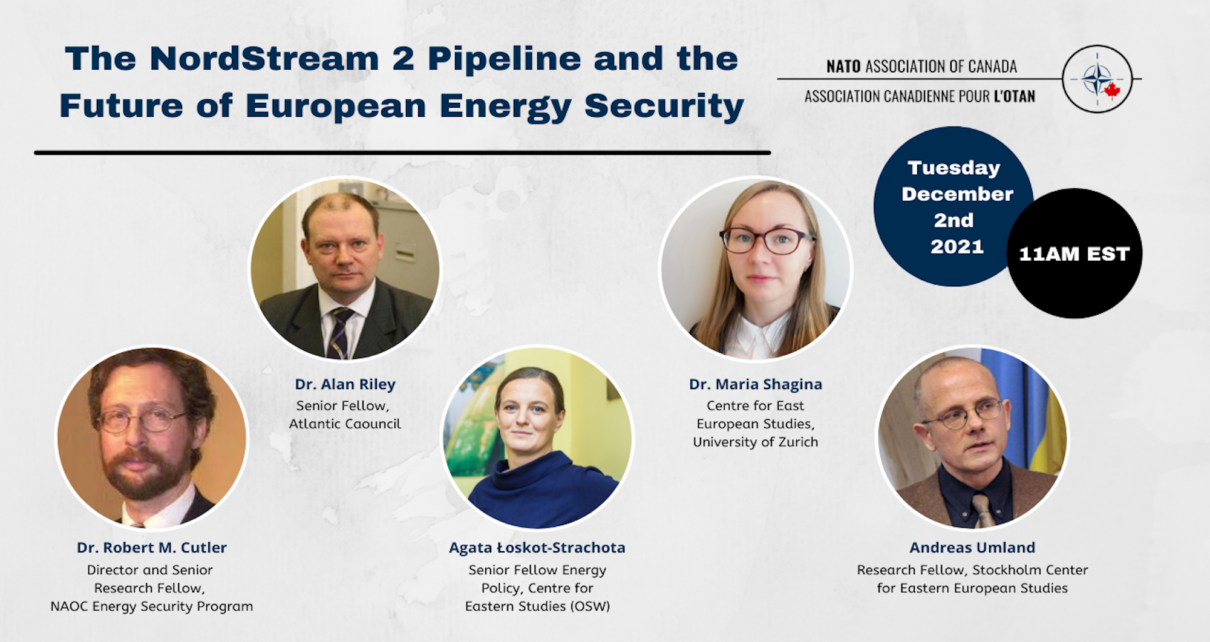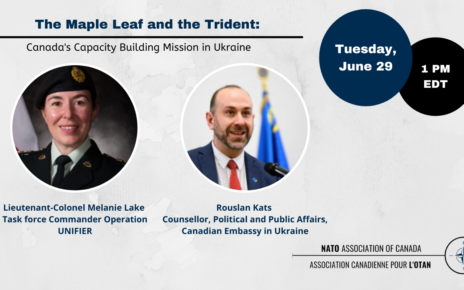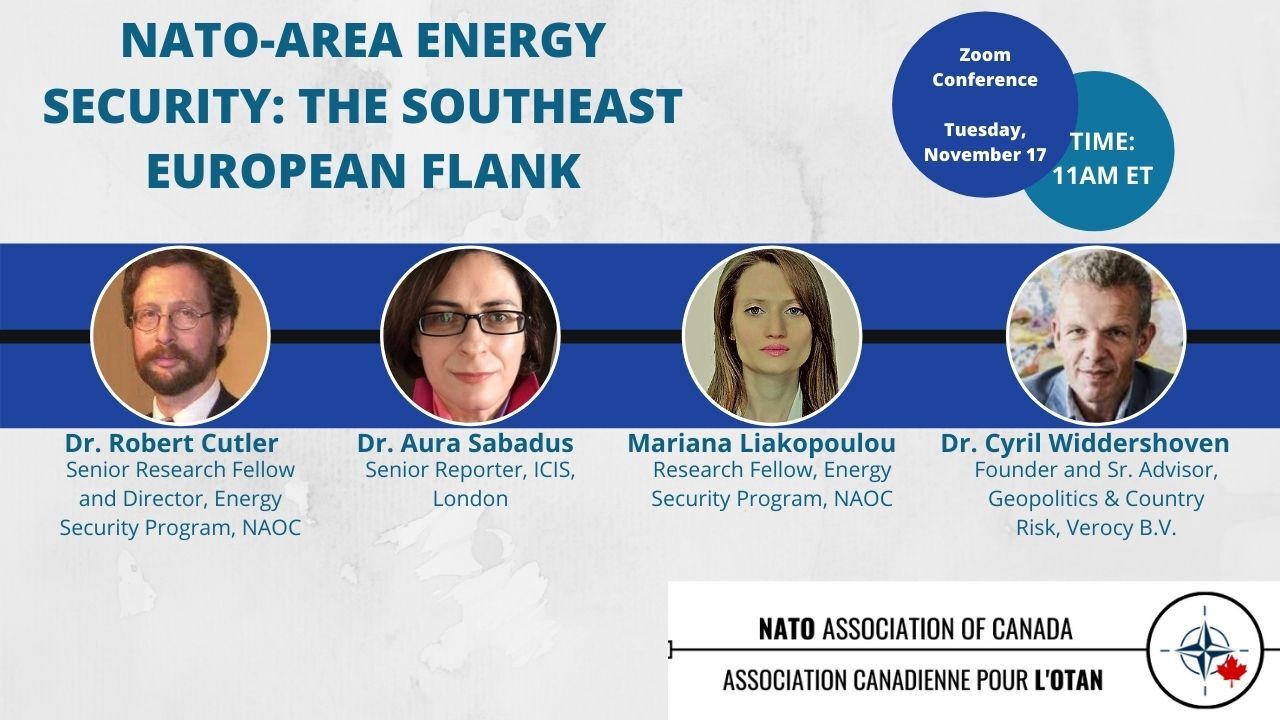This event was live broadcast on our YouTube channel, and a recording can be viewed here.
Russia’s NordStream 2 gas pipeline to Germany remains very much in the news, especially as winter looms in Europe. What are the chances that the pipeline will overcome legal and regulatory hurdles to enter into service; and if it will, then when? Does Europe really need Russian gas; and if so, then will even more energy dependence on Russia open it to political blackmail? What would that mean for Ukraine? What are the possibilities for Europe’s future energy mix, particularly in view of its policy commitment to decarbonization? A stellar panel of four world-class experts on the relevant geopolitical, economic and legal issues will join the NAOC Energy Security Program to address these and other questions in what will undoubtedly be a first-rate discussion.
Our speakers:
Dr. Robert M. Cutler, the panel moderator, is Senior Research Fellow and Director of the Energy Security Program at NATO Association of Canada. Educated at the Massachusetts Institute of Technology (ScB) and The University of Michigan (PhD), he started out as an academic specialist in Soviet foreign policy. After 1991 he branched out into policy analysis and consulting as an expert in International Energy Diplomacy, Security and Geo-economics, focusing on Europe and Eurasia. He has advised energy firms, governments, international institutions and NGOs while maintaining an active profile publishing widely in leading policy reviews, academic journals and the press. He is also Fellow, Canadian Energy Research Institute; Fellow, Canadian Global Affairs Institute; and Past Chairman, Board of Directors, Montreal Press Club.
Dr. Alan Riley specializes in EU law, particularly EU competition and energy law. He sits on the judicial panel of the Energy Community based in Vienna, applying EU law in the energy sector under the Energy Community Treaty to the non-EU Balkan States, Ukraine, Georgia and Moldova. He has written extensively on EU energy law and energy security issues and has advised EU Member State governments and energy companies on EU law and policy issues. He was previously Professor of Law at City, University of London, holds a PhD in European Union law from the Europa Institute, Edinburgh University, and qualified as a Solicitor of the Supreme Court of England and Wales.
Agata Łoskot-Strachota was educated principally at the University of Warsaw and holds an advanced degree in international economics. She has been an energy policy analyst since 2001 and is a senior research fellow at Warsaw-based Centre for Eastern Studies (OSW). Her areas of expertise within the general subject of international energy relations include the oil and gas sector and energy policy in Russia, the Caspian Sea region, the East European energy transit countries, and Central and Southern Europe. At present she focuses on challenges to the EU’s security of energy supply, the external dimension of EU energy policy, EU-Russia energy relations and developments in European gas market.
Dr. Maria Shagina is a postdoctoral fellow at the Center for Eastern European Studies at the University of Zurich. She is currently affiliated with the Geneva International Sanctions Network at the Graduate Institute. Her research interests cover international sanctions and energy politics with a particular focus on the post-Soviet states. Her publications have appeared in the CSS Analyses in Security Policy, European Council on Foreign Relations, Foreign Policy Research Institute, Atlantic Council, and New Eastern Europe. Previously, she held a postdoctoral fellowship at the Ritsumeikan University in Japan and was a visiting fellow at the Centre for Russian, European, and Eurasian studies at the University of Birmingham. She holds a PhD in Political Science from the University of Lucerne.
Andreas Umland is a Research Fellow at the Swedish Institute of International Affairs in Stockholm, Associate Professor of Political Science at the Kyiv-Mohyla Academy, Senior Expert at the Ukrainian Institute for the Future in Kyiv, as well as editor of the book series Soviet and Post-Soviet Politics and Society (ibidem-Verlag, 2004–). He was educated at Educated at Oxford, Berlin, Stanford and Cambridge and focuses on contemporary Ukrainian and Central/East European affairs.. His articles and analyses have appeared (in English, German and Russian) in such reviews as Survival, Journal of Democracy, European History Quarterly, Europe-Asia Studies, Problems of Post-Communism, Communist and Post-Communist Studies, Osteuropa, Politicheskie issledovaniia and Voprosy filosofii.




